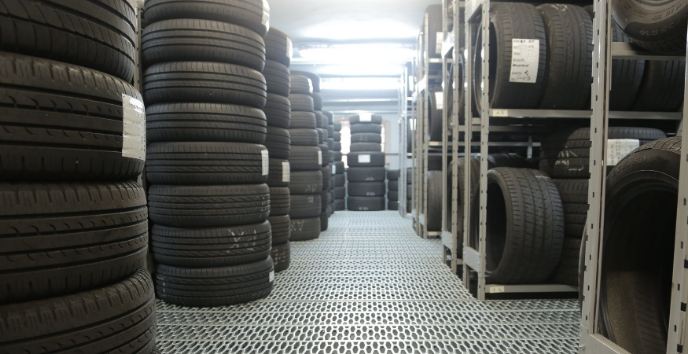Your tires should be one of the most important investments you make for your car. Chances are that unless you have decided to change the wheel size on your car, the tires that came with the purchase of your new automobile are just perfect for whatever you throw at them.
However, when your tires begin to wear out after a few years and you look for replacements, the sheer vastness of tire selection can be daunting to the average motorist.
Because there are so many different types of tires, each one claiming to specialize in certain criteria, you will definitely have to weigh out all of your options before you purchase your tires.
Luckily enough, if you do not have the time to pick out tires that are perfectly optimized for your car, driving style and weather conditions, there is still a perfect tire for you. Known as the all-season tire, this is a highly cost effective solution to any of your tire problems.
They come in all sizes and from a variety of well-known tire manufacturers so you do not have to limit your selection to only a few brands if you, say, prefer Goodyear over Michelin.
Furthermore, all-season tires are prime for people who live in places that have variations in their climates and do not wish to remove and remount their tires each and every time a rain or snow storm comes through town.
Unfortunately, as can be seen with almost all combo style products that offer you a multitude of great features for a relatively low price, there are a few problems that have been reported with all-season tires.
Even though many people love all-season tires for their smooth, comfortable ride in nearly any climate conditions; and even though their long wear times allow them to last much longer than other types of tires, there are a few notable problems.
First, just because a set of tires can handle all of the seasons does not mean that they can handle all of the other seasons well.
While it has been shown that they work absolutely perfectly in warmer conditions throughout the spring, summer, and fall, there have been a few drawbacks that users have noticed during the winter months.
Under rainy conditions and in circumstances where there is light snow or ice on the road, all-season tires have been shown to perform beautifully, but in places that receive more than simply a light snow from time to time, all-season tires simply cannot stand up to the punishment.
The rubber is simply too soft, which prevents all-season tires from breaking the ice and forming grips.
The second problem is the cost of all-season tires. While they are notably more cost effective than purchasing a variety of different tires for each of the different seasons, they will cost a bit more, on average, than a set of specialized tires.
This makes them great for people who live in the more temperate climates, but bad for people who live in areas with heavy snow on a regular basis throughout the wintertime, who will have to purchase a set of snow tires anyway.
Therefore, you should definitely purchase all-season tires if you live any state further south than the snow-belt states. If you live further north, other types of tires may be better for your situation.
Unfortunately, as can be seen with almost all combo style products that offer you a multitude of great features for a relatively low price, there are a few problems that have been reported with all-season tires.
Even though many people love all-season tires for their smooth, comfortable ride in nearly any climate conditions; and even though their long wear times allow them to last much longer than other types of tires, there are a few notable problems.
First, just because a set of tires can handle all of the seasons does not mean that they can handle all of the other seasons well.
While it has been shown that they work absolutely perfectly in warmer conditions throughout the spring, summer, and fall, there have been a few drawbacks that users have noticed during the winter months.
Under rainy conditions and in circumstances where there is light snow or ice on the road, all-season tires have been shown to perform beautifully, but in places that receive more than simply a light snow from time to time, all-season tires simply cannot stand up to the punishment.
The rubber is simply too soft, which prevents all-season tires from breaking the ice and forming grips.
The second problem is the cost of all-season tires. While they are notably more cost effective than purchasing a variety of different tires for each of the different seasons, they will cost a bit more, on average, than a set of specialized tires.
This makes them great for people who live in the more temperate climates, but bad for people who live in areas with heavy snow on a regular basis throughout the wintertime, who will have to purchase a set of snow tires anyway.
Therefore, you should definitely purchase all-season tires if you live any state further south than the snow-belt states. If you live further north, other types of tires may be better for your situation.

